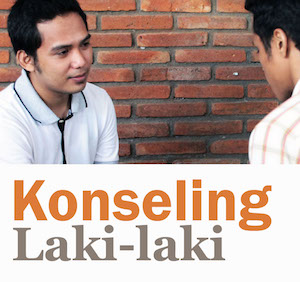Author: Soeliah Hellwig, Universiteit Van Amsterdam
Both in Indonesia and the Netherlands prostitution is regarded as a public issue. However, both countries manage it in very different ways. In this article I will compare both policies with each other so that the countries can learn some things from one another.
Common views regarding sex worker are that those involved in prostitution should only be there if they were free to choose that option and people must not be forced into prostitution through anything like poverty, fear or coercion. However, abolishing prostitution is not an effective option because prostitution is an inevitable part of society. It has existed for as long as there has been civilization so by making it illegal, it will not go away, merely move to clandestine spaces. The only way to make sure that prostitution does not get out of hand is by regulating it and making sure that nobody doing it involuntarily.
Both Indonesia and the Netherlands use human trafficking as the main reason for the need to change prostitution. An argument often made for the abolishment of prostitution in the Netherlands is that there are women in prostitution who did not choose to be there and were forced as a victim of human trafficking. Another argument is that prostitution is degrading towards women. The problematic aspect of this argument is that it victimizes all prostitutes and frames women as helpless creatures who are subjected to the will of men. This does not correspond well with one of the principles of feminism that is highly esteemed in the Netherlands and assumes that women are equal to men in every manner.
Clearly, entering prostitution is not always a choice; some people accept it as a way of earning a living or as a means to survive. In Indonesia prostitution is illegal by law. This is very different from the Dutch situation, where prostitutes were never criminalized. Instead, they are being victimized because the general assumption is that no woman would ever voluntarily become a prostitute.
Prostitutes were never criminalized under Dutch law and one cannot regulate what is forbidden by the law, so in 1999 the ban on brothels was lifted in order to regulate prostitution. Before prostitution was legalized in the Netherlands, policy was similar to what it currently is in Indonesia. Authorities turned a blind eye to what was going on as long as public order was not threatened. Most of the goals of the Indonesian government policy on prostitution are related to public order. Prostitution policy in Indonesia is based on the attempt to show the humiliation and degradation prostitutes are subjected to. This is called the ‘politics of disgust’. However, this politics of disgust make it very hard for former prostitutes to find a new job. Protecting individual rights is given little consideration in Indonesian policy-making on prostitution.
Women are accused of contributing to their own fate by choosing ‘quick, easy money’ in prostitution rather than considering other means of making a living. The Indonesian Social Affairs Agency refers to those engaging in prostitution as suffering from a social disability. By doing this, they are actually the ones degrading prostitutes instead of prostitution itself being the degrading factor.
There is a lack of inclusion of organisations that are concerned with the welfare of prostitutes in the development of policy and decision making in both the Netherlands and Indonesia. In Indonesia, prostitution policy reveals a lack of awareness with respect to the societal and cultural influence underlying different aspects of prostitution. The expression of liberal views by some Indonesian politicians conflicts with a broader community standard. In the Netherlands, policy making is based upon the assumption that every policy is made to the prostitute’s best interest. However, this is often not the case. Prostitutes become increasingly restricted by the policies made. This gives them less choices in the jobs they take on and in turn makes them easy victims of clients with bad intentions.
In the new discourse that came up around the legalization of prostitution, prostitution was viewed as a sexual service or sex work, a profession a woman can enter out of free will. The traditional discourse framed prostitution as a moral and social evil, prostitutes as victims, and those profiting from her as unscrupulous middlemen. This discourse is also still very evident in Indonesia.
Monitoring and regulation were no guarantee that women do not work under threat of coercion. The position of prostitutes has not improved, and many prostitutes have moved to ‘invisible types’ of prostitution. The state, by its slack implementation of the act and lack of attention to social rights in the proposed bill, is responsible for creating the bad working conditions, intimidation and blackmail itself. Not granting work permits to all sex workers leaves them open to blackmail and coercion into poor working conditions and bad pay. In this way, policy actually creates the bad working conditions. Moreover, the emphasis on trafficking and vulnerable young victims has the effect of shifting the attention away from these conditions and the lack of prostitutes’ social rights.
In Indonesia, prostitution is illegal. Because it is illegal, the local government tries to ban it. However, because of the ban, the government is unable to regulate it properly. The best way to stop human trafficking within prostitution, is to legalize it and regulate it. The Netherlands tried to do this when they legalized prostitution in 1999. However, because policy was not correctly implemented and prostitutes and organizations for prostitutes’ rights were not included in the making of the policy, most prostitutes were negatively affected by the legalization. The bottom line is that both countries have failed to achieve what they were aiming for and so far have not been able to improve the rights and lives of prostitutes. []
* The views expressed in this article are those of the author and do not necessarily represent the views of Rifka Annisa.







